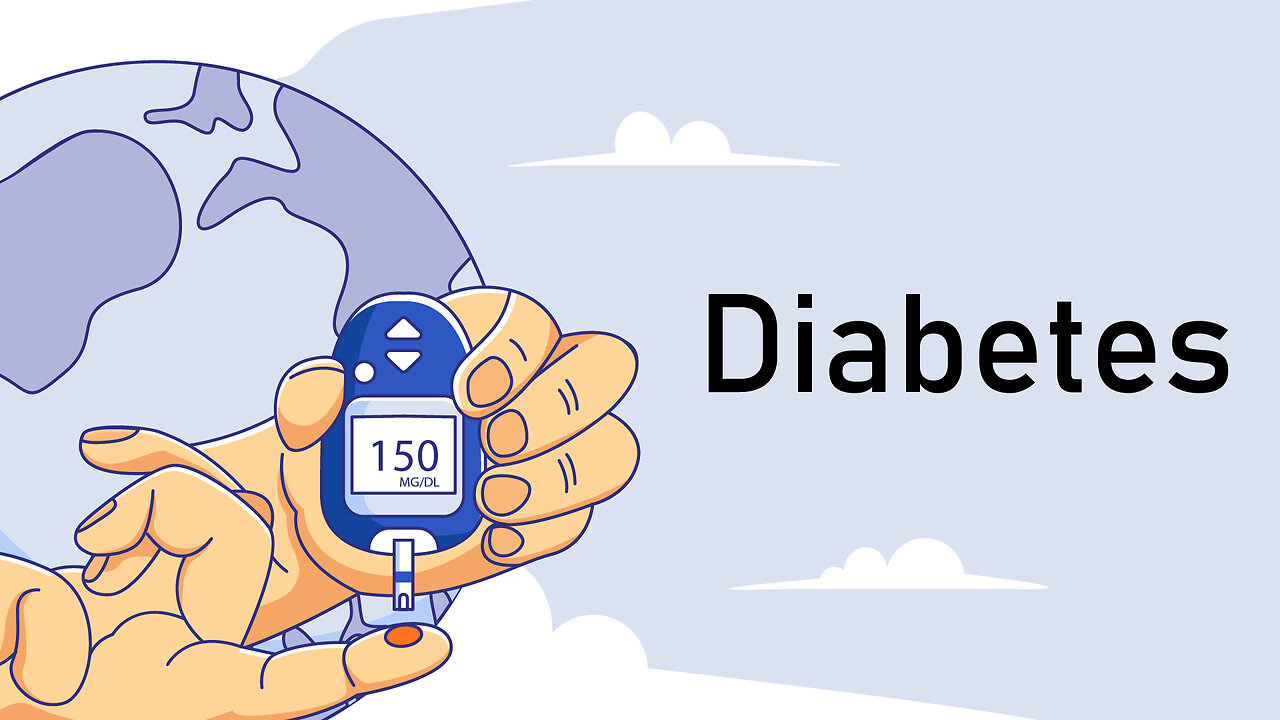Premium Only Content

what is Diabetes?
what is Diabetes?
Diabetes, also known as diabetes mellitus, is a chronic medical condition that occurs when the body has difficulty regulating blood sugar (glucose) levels. Glucose is a crucial source of energy for the body's cells, and its levels need to be carefully maintained within a certain range. Insulin, a hormone produced by the pancreas, plays a central role in this process.
There are three main types of diabetes:
Type 1 Diabetes: In this autoimmune condition, the body's immune system attacks and destroys the insulin-producing cells in the pancreas. As a result, individuals with Type 1 diabetes have little to no insulin production. They require lifelong insulin injections or the use of an insulin pump to manage their blood sugar levels.
Type 2 Diabetes: This is the most common form of diabetes, usually occurring in adulthood. In Type 2 diabetes, the body becomes resistant to the effects of insulin, and the pancreas might not produce enough insulin to compensate for this resistance. Lifestyle factors, genetics, and obesity can contribute to the development of Type 2 diabetes. It can often be managed with a combination of dietary changes, physical activity, oral medications, and, in some cases, insulin.
Gestational Diabetes: This type of diabetes develops during pregnancy and usually resolves after childbirth. It occurs when hormonal changes during pregnancy lead to insulin resistance, and the pancreas cannot produce enough insulin to meet the increased demand. Gestational diabetes requires careful monitoring and management to ensure the health of both the mother and the baby.
Uncontrolled diabetes can lead to various complications over time, including cardiovascular disease, kidney damage, nerve damage (neuropathy), vision problems, and slow wound healing. Therefore, it's important for individuals with diabetes to work closely with healthcare professionals to manage their blood sugar levels and reduce the risk of complications.
Symptoms of diabetes can include excessive thirst, frequent urination, unexplained weight loss, fatigue, blurred vision, and slow healing of wounds. It's essential to seek medical attention if you suspect you might have diabetes, as early diagnosis and proper management are crucial for maintaining overall health
-
 UPCOMING
UPCOMING
LFA TV
12 hours agoTHE RUMBLE RUNDOWN LIVE @9AM EST
1.73K -
 1:11:37
1:11:37
Mike Rowe
8 days agoDoes China Control The NBA? | Enes Kanter Freedom #453 | The Way I Heard It
10.8K33 -
 1:15:41
1:15:41
Steve-O's Wild Ride! Podcast
19 hours agoBert McCracken: The Unlikely Godfather of Hardcore Music
499 -
 19:20
19:20
Stephen Gardner
1 day ago🚨Trump's latest Marco Rubio ORDER LEAKED by New York Times!
68.1K109 -
 21:33
21:33
Liberty Hangout
2 days agoDemocrats Invite Me Over For Breakfast
6.01K35 -
 2:38:56
2:38:56
FreshandFit
14 hours agoShe Left Her Man To Find A HVM In Miami w/ 6IX9INE
365K150 -
 11:16
11:16
Blackstone Griddles
13 hours agoDouble Roasted Green Chile Smash Burger on the Blackstone Griddle
7.13K2 -
 14:36
14:36
Tactical Advisor
17 hours agoNew Military Thermal Target
12.7K2 -
 2:10
2:10
OfficialJadenWilliams
17 hours agoHow we treated AI in 2023 vs 2025
6.98K4 -
 9:02
9:02
The Shannon Joy Show
17 hours agoWhy is Canada PERSECUTING Dr. Makis
11.7K6